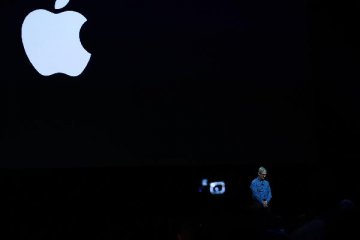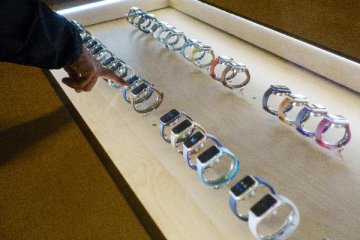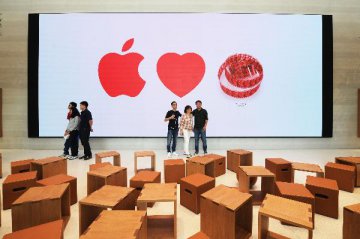
The strong U.S. dollar is more influential on Wall Street than it has been in years, and it's starting to make a serious dent in U.S. companies' earnings, CNBC's Jim Cramer said Wednesday, the midpoint of the busiest earnings week of the year.
"The strong dollar is the great untold story of this earnings period," he said. "We keep underestimating the strength of the greenback here and the weakness of nearly every other currency under the sun."
Cramer is struck by how often investors tune out executives' comments about the strong dollar hurting sales, which happens at U.S.-based companies when earnings in weaker foreign currencies start translating into fewer U.S. dollars.
Even Apple CEO Tim Cook, who spoke to Cramer and CNBC's Josh Lipton after earnings Tuesday, has taken steps to offset the discrepancy.
"A strong dollar is very bad news for American companies that are trying to compete with foreign rivals, especially when we're talking about products with a high price point like iPhones," Cramer said on "Mad Money." "The dollar's the No. 1 reason why analysts have had to cut their estimates this earnings season."
Cramer argued that part of Apple's 27-percent revenue shortfall in China must have been caused by the strong dollar. He acknowledged that everything from the trade war, to a lack of carrier subsidies, to rising nationalism, to competition from Chinese mobile phone makers probably played a role, but said at least 3 to 4 percent of the decline was due to the dollar raising iPhone prices overseas.
"We hear endlessly that Apple can't compete any longer, that it's not innovative enough, that it's lost its cache," he said. "To me, the larger issue is that, at least in China, Apple's playing with both hands tied behind its back: it's an iconic American product — not popular in the PRC right now to be American — and its products are suddenly more expensive thanks to this amazing run in the dollar."
And it's not just Apple. Cramer has found himself struggling to reconcile currency discrepancies for a host of old-line companies including Johnson & Johnson, Caterpillar, United Technologies and 3M.
It's also not just China. The weak Turkish lira is also hitting U.S.-based operators, costing Apple more than $500 million last quarter just in translation costs.
"That's the crux of the problem. If you're an American company that does a lot of business overseas, the strong dollar has become the bane of your existence," the "Mad Money" host said, adding that he saw some "huge distortions."
Worse, the issue might not go away anytime soon: U.S. interest rates are still higher than in most countries, and paired with strong employment, they make the United States a "bastion of stability" for foreign investors, he explained. That only contributes to dollar strength, because those investors have to buy U.S. dollars to be able to buy bonds.
"So I am thrilled that the Fed has backed away from its earlier plans to keep raising interest rates," he said. "If they tightened in this environment, the greenback would spike so much, it would be disastrous. Powell's more patient approach will hopefully let the dollar pull back somewhat, or at least stop going higher endlessly."
























Latest comments